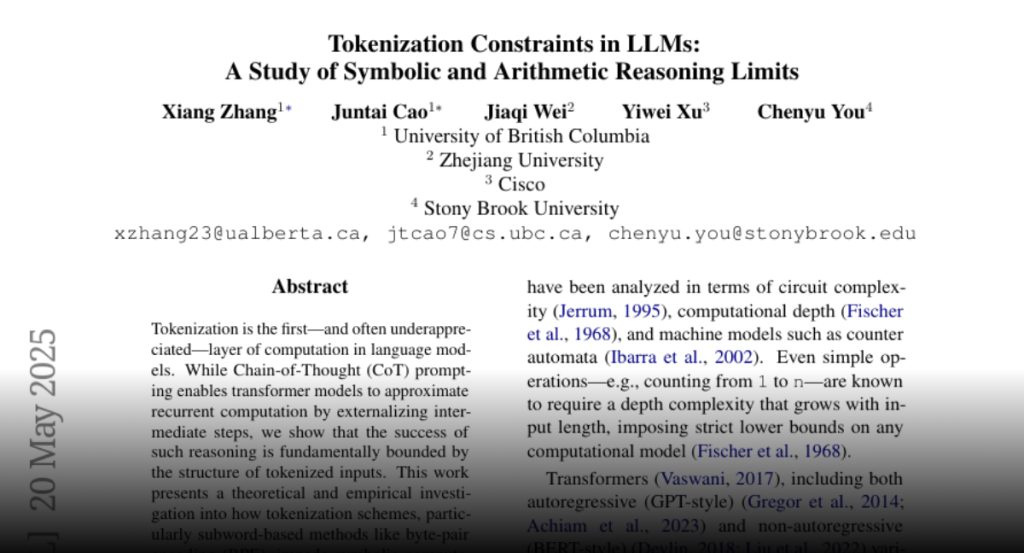Tokenization is the first – and often underappreciated – layer of computation
in language models. While Chain-of-Thought (CoT) prompting enables transformer
models to approximate recurrent computation by externalizing intermediate
steps, we show that the success of such reasoning is fundamentally bounded by
the structure of tokenized inputs. This work presents a theoretical and
empirical investigation into how tokenization schemes, particularly
subword-based methods like byte-pair encoding (BPE), impede symbolic
computation by merging or obscuring atomic reasoning units. We introduce the
notion of Token Awareness to formalize how poor token granularity disrupts
logical alignment and prevents models from generalizing symbolic procedures.
Through systematic evaluation on arithmetic and symbolic tasks, we demonstrate
that token structure dramatically affect reasoning performance, causing failure
even with CoT, while atomically-aligned formats unlock strong generalization,
allowing small models (e.g., GPT-4o-mini) to outperform larger systems (e.g.,
o1) in structured reasoning. Our findings reveal that symbolic reasoning
ability in LLMs is not purely architectural, but deeply conditioned on
token-level representations.


1 Comment
I don’t think the title of your article matches the content lol. Just kidding, mainly because I had some doubts after reading the article. https://www.binance.info/ro/register?ref=V3MG69RO